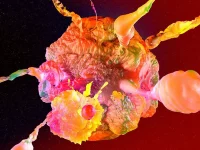Extreme Diets Can Quickly Alter Gut Bacteria.

Science. 11 December 2013. With all the talk lately about how the bacteria in the gut affect health and disease, it’s beginning to seem like they might be in charge of our bodies. But we can have our say, by what we eat. For the first time in humans, researchers have shown that a radical change in diet can quickly shift the microbial makeup in the gut and also alter what those bacteria are doing. The study takes a first step toward pinpointing how these microbes, collectively called the gut microbiome, might be used to keep us healthy.
« It’s a landmark study, » says Rob Knight, a microbial ecologist at the University of Colorado, Boulder, who was not involved with the work. « It changes our view of how rapidly the microbiome can change. »
Almost monthly, a new study suggests a link between the bacteria living in the gut and diseases ranging from obesity to autism, at least in mice. Researchers have had trouble, however, pinning down connections between health and these microbes in humans, in part because it’s difficult to make people change their diets for the weeks and months researchers thought it would take to alter the gut microbes and see an effect on health.

Eat up. This plant-based meal was provided as part of a test of the effects of diet on gut microbes.
But in 2009, Peter Turnbaugh, a microbiologist at Harvard University, demonstrated in mice that a change in diet affected the microbiome in just a day. So he and Lawrence David, now a computational biologist at Duke University in Durham, North Carolina, decided to see if diet could have an immediate effect in humans as well. They recruited 10 volunteers to eat only what the researchers provided for 5 days. Half ate only animal products—bacon and eggs for breakfast; spareribs and brisket for lunch; salami and a selection of cheeses for dinner, with pork rinds and string cheese as snacks. The other half consumed a high-fiber, plants-only diet with grains, beans, fruits, and vegetables. For the several days prior to and after the experiment, the volunteers recorded what they ate so the researchers could assess how food intake differed.
The scientists isolated DNA and other molecules, as well as bacteria, from stool samples from before, during, and after the experiment. In this way, they could determine which bacterial species were present in the gut and what they were producing. The researchers also looked at gene activity in the microbes.
Within each diet group, differences between the microbiomes of the volunteers began to disappear. The types of bacteria in the guts didn’t change very much, but the abundance of those different types did, particularly in the meat-eaters, David, Turnbaugh, and their colleagues report online today in Nature. In 4 days, bacteria known to tolerate high levels of bile acids increased significantly in the meat-eaters. (The body secretes more bile to digest meat.) Gene activity, which reflects how the bacteria were metabolizing the food, also changed quite a bit. In those eating meat, genes involved in breaking down proteins increased their activity, while in those eating plants, other genes that help digest carbohydrates surfaced. « What was really surprising is that the gene [activity] profiles conformed almost exactly to what [is seen] in herbivores and carnivores, » David says. This rapid shift even occurred in the long-term vegetarian who switched to meat for the study, he says. « I was really surprised how quickly it happened.”
From an evolutionary perspective, the fact that gut bacteria can help buffer the effects of a rapid change in diet, quickly revving up different metabolic capacities depending on the meal consumed, may have been quite helpful for early humans, David says. But this flexibility also has possible implications for health today.
« This is a very important aspect of a very hot area of science, » writes Colin Hill, a microbiologist at University College Cork in Ireland, who was not involved with the work. « Perhaps by adjusting diet, one can shape the microbiome in a way that can promote health, » adds Sarkis Mazmanian, a microbiologist at the California Institute of Technology in Pasadena, also unaffiliated with the study.
But how it should be shaped is still up in the air. « We’re not yet at a point where we can make sensible dietary recommendations aimed at ‘improving’ the microbiota (and the host), » Hill writes. He and others are cautious, for example, about the implications of the increase seen in one bacteria, Bilophila wadsworthia, in the meat-eaters that in mice is associated with inflammatory bowel disease and high-fat diets. Says Knight, « There’s still a long way to go before causality is established. »
So Hill’s best advice for now: « People should ideally consume a diverse diet, with adequate nutrients and micronutrients—whether it’s derived from animal or plant or a mixed diet. » (Science mag.)










